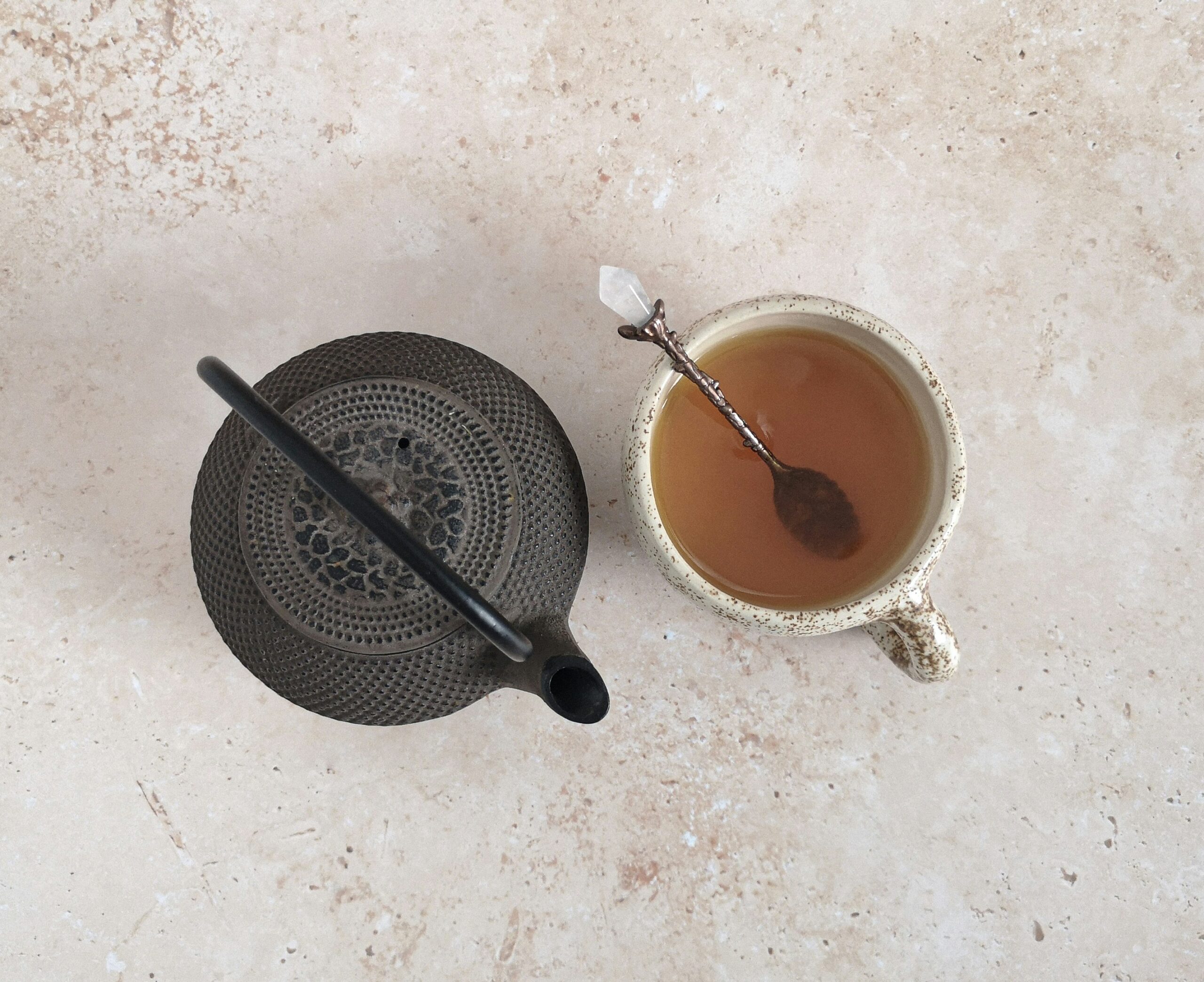

Endometriosis is a condition characterised by the growth of tissue similar to the lining of the uterus in places outside of the womb. This can cause chronic pain, heavy periods, and fertility issues. Finding effective treatments to manage the symptoms of endometriosis is a challenge for many women. Among the potential therapies, milk thistle, a herbal remedy known for its liver-protective qualities, has garnered attention for its potential benefits.
Milk thistle contains silymarin, an active component recognised for its antioxidant and anti-inflammatory properties. Silymarin’s potential effects on endometriosis are drawing interest as managing inflammation could play a role in alleviating some of the condition’s symptoms. While exploring herbal options like milk thistle, it’s important to consider how they integrate with current treatments and lifestyle modifications aimed at managing endometriosis.
Key Takeaways
- Milk thistle’s active ingredient silymarin may offer benefits for managing endometriosis-related inflammation.
- Integrating herbal supplements like milk thistle should be considered alongside conventional treatments.
- Consulting healthcare professionals is crucial for personalised guidance on using milk thistle for endometriosis.
so what are we talking about today?
- Understanding Endometriosis
- Milk Thistle and Its Components
- Milk Thistle for Liver Health
- Endometriosis and Inflammation
- Milk Thistle’s Effects on Endometriosis Symptoms
- Considerations for Milk Thistle Supplementation
- Integrating Milk Thistle with Other Treatments
- Lifestyle and Dietary Considerations for Endometriosis
- Monitoring and Professional Guidance
- Frequently Asked Questions
Understanding Endometriosis
Endometriosis is a condition that affects your reproductive system, leading to chronic pelvic pain, potentially impacting fertility, and involving endometrial tissue outside the uterus.
Causes of Endometriosis
The exact cause of endometriosis has remained largely elusive, but several factors are believed to contribute. One prominent theory is retrograde menstruation, where menstrual blood containing endometrial cells flows back through the fallopian tubes into the pelvic cavity instead of leaving your body. These endometrial-like cells may then stick to your pelvic walls and organs, growing and bleeding with each menstrual cycle.
- Retrograde Menstruation: Menstrual blood flows back into fallopian tubes.
- Immune System Disorders: Your immune system fails to recognise and destroy endometrial-like tissue outside of the uterus.
- Hormonal Influences: The hormone oestrogen might promote the growth of endometriosis.
Other potential contributors include:
- Transformation of peritoneal cells
- Embryonic cell transformation during puberty under the influence of oestrogen
- Surgical scars implantation
Symptoms and Diagnosis
Endometriosis symptoms can vary, but typically include:
- Pelvic Pain: Often associated with menstrual periods and can be severe.
- Menstrual Irregularities: Heavy menstrual periods or bleeding between periods.
- Infertility: Sometimes first diagnosed in those seeking treatment for infertility.
Diagnosis of endometriosis is often delayed because symptoms may be mistaken for typical menstrual problems. A definitive diagnosis is usually established through a laparoscopy, a surgical procedure where a camera is used to look inside the pelvic cavity for endometrial-like tissue outside the uterus.
- Medical History: Your doctor will discuss specifics of your symptoms.
- Physical Exam: Checking for abnormalities, tenderness, or cysts in your pelvic region.
- Ultrasound: It may detect ovarian cysts associated with endometriosis (endometriomas).
- MRI: Provides a detailed image of your organs and any endometriotic tissue.
- Laparoscopy: A definitive diagnostic procedure to identify and possibly remove abnormal tissue.
Understanding both the causes and symptoms is critical for managing this often painful condition and improving your quality of life.
Milk Thistle and Its Components
In your quest to understand natural remedies for health conditions like endometriosis, you’ll find that milk thistle is a medicinal plant that boasts significant components, particularly silymarin, known for their antioxidant properties.
Silymarin Explained
Silymarin is the main active constituent in milk thistle (Silybum marianum), a member of the Asteraceae family. It’s a complex mixture of flavonolignans which includes silybin, silydianin, and silycristin. This blend of flavonoids is revered for its potent antioxidant properties. These antioxidants are crucial because they help combat oxidative stress and may reduce inflammation in your body, potentially benefitting conditions such as endometriosis.
Milk Thistle History and Uses
Tracing its use back to ancient times, milk thistle has been a staple in traditional medicine. Initially used as a remedy for liver damage and gallbladder disorders, milk thistle has expanded its reputation to include uses such as supporting breast milk production in new mothers. Its therapeutic applications have grown due to its mixture of antioxidants and flavonoids, which provide its health-promoting properties.
Milk Thistle for Liver Health
Milk thistle, a plant with a longstanding use in traditional medicine, is often lauded for its hepatoprotective properties. Specifically, it may support your liver health, contributing to the organ’s detoxification processes and potentially aiding in liver conditions.
Detoxification and Liver Function
Your liver is crucial for detoxifying harmful substances in the body. As such, maintaining healthy liver function is vital for overall wellbeing. Milk thistle contains a group of compounds collectively known as silymarin, which is thought to enhance the liver’s ability to cleanse the blood and eliminate toxins. This support could be particularly beneficial if you’re exposed to environmental toxins or if you’re looking to support the liver’s natural detoxification pathways.
Liver Conditions and Milk Thistle
In terms of liver diseases such as hepatitis and cirrhosis, milk thistle has been researched for its potential effects on liver health. For instance, silymarin, the active component in milk thistle, might offer a protective effect on the liver, possibly helping to reduce liver inflammation and halt fibrosis. If you’re managing conditions like hepatitis C or other forms of liver dysfunction, integrating milk thistle into your regimen could potentially help, but it’s important to do so under the guidance of a healthcare professional.
RELATED: How To Do A Liver Cleanse With Milk Thistle: A Step-By-Step Guide
Endometriosis and Inflammation
When you have endometriosis, inflammation is a core part of what causes your symptoms. Milk thistle might help you manage this inflammation thanks to its properties.
Role of Inflammation in Endometriosis
In endometriosis, the tissue similar to the lining inside your uterus (the endometrium) grows outside of it, often causing pain and discomfort. Inflammation happens to be a key player in this process. Your body responds to these endometrial lesions with an inflammatory reaction, recruiting inflammatory cytokines that can aggravate the condition. In fact, these cytokines are signalling proteins that alert your immune system to ramp up its response, contributing to the pain and swelling associated with endometriosis.
Anti-Inflammatory Properties of Milk Thistle
Milk thistle is known for its anti-inflammatory properties. As part of its action, the silymarin in milk thistle acts as an antioxidant and a free-radical scavenger, which helps reduce oxidative stress and the resulting inflammation. Some studies suggest that milk thistle may help in modulating inflammatory responses in the body, especially in connection to endometrial lesions. By possibly suppressing the inflammatory cytokines, milk thistle may support you in managing the symptoms associated with endometriosis.
Milk Thistle’s Effects on Endometriosis Symptoms
If you’re grappling with endometriosis, especially conditions such as pain, heavy periods, and bloating, you might be exploring alternatives to manage these symptoms. Milk thistle is one potential herbal remedy that’s been studied for its benefits in this area.
Pain Management
Milk thistle may help you manage the discomfort associated with endometriosis. Its active ingredient, silymarin, has anti-inflammatory properties, which could be beneficial in reducing the pain you experience. While it’s not a cure for endometriosis, incorporating milk thistle into your routine may alleviate some of the inflammation contributing to your pelvic pain.
Managing Other Endometriosis-Related Symptoms
Apart from pain relief, milk thistle may also offer some relief from other symptoms. If you’re often feeling nauseous or suffer from bloating during your menstrual cycle, milk thistle could be a supportive part of your symptom management strategy. However, it’s crucial to approach this treatment option with caution, especially if you’re currently on other medications, as milk thistle can interact with certain drugs. Always consult your health care provider before starting any new supplement.
Considerations for Milk Thistle Supplementation
Before considering milk thistle as a supplement for managing endometriosis, it’s important to be informed about the correct dosage and potential safety concerns. Understand the risks of interactions and side effects to make an informed decision.
Dosage and Safety
When using milk thistle to help with endometriosis symptoms, following the recommended dosage is crucial for safety. Studies typically use dosages ranging from 140 to 300 mg of silymarin, the active compound in milk thistle, taken up to three times a day. It’s essential to start with the lower end of the dosage recommendation and consult with your healthcare provider to tailor it to your specific needs.
- Start cautiously: Begin with a lower dose to assess your body’s response.
- Consult a professional: Your GP or a healthcare professional can provide advice tailored to your health status.
Potential Interactions and Side Effects
Milk thistle is generally well-tolerated, but like any supplement, it can have potential side effects and interactions. You might experience digestive issues like diarrhoea or nausea, and less commonly, headaches. If you have any underlying conditions or take medications, milk thistle could affect how your medications work, so it’s important to discuss possible interactions with your pharmacist or GP.
- Allergic reactions: Rare but possible, especially if you’re allergic to the Asteraceae/Compositae family of plants.
- Medication interactions: Check with your doctor if you’re on medications, particularly for liver-related conditions.
By being mindful of these considerations and talking with your healthcare provider, you can make a more informed decision about using milk thistle as part of managing endometriosis.
Integrating Milk Thistle with Other Treatments
When managing endometriosis, integrating milk thistle with your current treatment regimen may help support your liver’s health, potentially aiding in the metabolism of hormones and pain management.
Complementary Herbs and Supplements
Milk thistle, with its active component silymarin, is commonly used for its liver-supporting properties. For holistic endometriosis care, consider pairing it with other herbs known for their anti-inflammatory benefits:
- Turmeric (contains curcumin): May reduce inflammation.
- Dandelion root: A gentle liver tonic that can help with detoxification.
- Ginger: Known to ease nausea and may help with menstrual pain.
Consider the following dietary supplements to support overall fertility and wellbeing:
- Omega-3 Fatty Acids: For their anti-inflammatory properties.
- Magnesium: May help with muscle relaxation and reduce menstrual cramps.
Always check with a healthcare professional before starting new supplements, especially if you’re already undergoing other treatments.
Conventional Medical Treatments
Incorporating milk thistle into a treatment plan that includes conventional medical treatments requires careful consideration to ensure they work together effectively.
- Pain Medications: Milk thistle is generally considered safe, but it’s important to assess how it might affect the metabolism of various pain medications.
- Hormone Therapy: As milk thistle affects liver function and hormone metabolism, it’s crucial to discuss its use with your doctor to avoid interactions that might alter the efficacy of hormone treatments.
- Surgery: If you’re preparing for or recovering from endometriosis surgery, milk thistle may assist in liver function but be sure to seek advice from your surgeon or specialist to ensure its safe use pre- and post-operation.
Remember, any herbal or supplemental strategy should complement, not replace, your current medical treatments unless directed by a healthcare provider.
Lifestyle and Dietary Considerations for Endometriosis
When managing endometriosis, adjusting your lifestyle and diet can play a pivotal role in improving your quality of life. It’s about fostering habits that can help modulate your estrogen levels and inflammation. Here are key practices to consider:
Lifestyle Changes
- Exercise regularly: Engaging in moderate exercise may help reduce estrogen and boost your overall well-being.
- Manage stress: Stress can impact hormone levels; thus, mindfulness or yoga could be beneficial.
Dietary Habits
- Increase anti-inflammatory foods: Consuming foods with anti-inflammatory properties, such as omega-3-rich fish or leafy greens, may alleviate endometriosis symptoms.
- Balance blood sugar: Aim to have complex carbohydrates and protein in your meals to maintain stable blood sugar levels.
Supplements and Vitamins
- Certain dietary supplements, including milk thistle, have been suggested to support liver health. Milk thistle is thought to assist in detoxifying processes that might affect estrogen metabolism.
- Vitamin D is crucial for immune function and may affect the severity of endometriosis.
- Vitamin C, also known as ascorbic acid, is an antioxidant nutrient that plays a crucial role in collagen synthesis, immune function, and wound healing. It may help reduce inflammation in the body, which could potentially benefit individuals with endometriosis. However, its specific role in treating or preventing endometriosis is not firmly established.
- Vitamin B is a group of essential nutrients that play key roles in the body, including energy metabolism, nerve function and DNA synthesis. Studies suggest certain B vitamins may benefit those with endometriosis.
Fertility Considerations
- Both diet and lifestyle alterations have the potential to improve fertility outcomes by optimising progesterone production.
It’s essential to consult a healthcare professional before making significant changes to your diet or lifestyle, particularly when considering supplements such as milk thistle for endometriosis. They can provide tailored advice that considers your individual health needs and goals.
Monitoring and Professional Guidance
When considering milk thistle as a supplement for managing endometriosis, it’s imperative that you consult with a healthcare professional. Given that endometriosis is a complex condition, tailored advice from your healthcare provider is essential for safe and effective treatment strategies.
Safety Concerns and Possible Interactions:
- Milk Thistle is generally considered safe, but can interact with certain medications, including blood sugar regulators and oral contraceptives.
- If you’re pregnant or breastfeeding, discuss the potential risks with your healthcare provider as supplement safety is paramount during these periods.
- Milk thistle may impact your body’s hormone levels, which is of particular concern if you’re using hormone-based therapies.
Monitor Your Health:
- Keep track of any changes in your symptoms or new side effects.
- Regularly updating your healthcare provider ensures that any necessary adjustments to your treatment can be made.
- Remember, consistency in monitoring is key for understanding how milk thistle is affecting your endometriosis.
Legal and Regulatory Considerations:
- Be aware that the Food and Drug Administration (FDA) does not regulate supplements in the same way as pharmaceuticals. Always choose products from reputable manufacturers.
By staying informed and keeping an open line of communication with your healthcare provider, you’ll ensure that your journey with milk thistle for endometriosis is as beneficial and secure as possible.
Frequently Asked Questions
In this section, you’ll find specific information about using milk thistle for endometriosis, including potential effects on your body, dosage recommendations, and more.
What are the potential side effects of using milk thistle for women with endometriosis?
Milk thistle is generally well-tolerated, but some women with endometriosis may experience mild side effects such as digestive upset or allergic reactions. Always consult your healthcare provider before starting any new supplement.
How might milk thistle interact with oestrogen levels in the body?
While some clinical studies in this research suggests phytoestrogens may influence oestrogen levels, milk thistle is typically considered to have minimal oestrogenic activity. However, it’s best to discuss with your healthcare professional to understand how it might affect your individual hormone levels.
Are there any particular warnings about using milk thistle for individuals with a history of cancer?
If you have a history of hormone-sensitive conditions like certain cancers (breast cancer, ovarian cancer, uterine cancer), be cautious as milk thistle may have oestrogenic effects. It’s crucial to seek medical advice before using milk thistle in these circumstances.
What is the recommended dosage of milk thistle for managing symptoms of endometriosis?
Dosage may vary, but studies on milk thistle for endometriosis, like the one assessing Silymarin, have used specific doses. Your healthcare provider can suggest the most appropriate amount for you.
Can you suggest the top supplements that might help with endometriosis symptoms?
While milk thistle can support liver function, other herbal medicine or remedies like dandelion or lemon balm may also provide benefits, but it’s important to choose a milk thistle supplement carefully and consult a healthcare expert. Let me know if you are interested in a list of supplements.
For how long does milk thistle typically remain active in your system?
Milk thistle’s effects can vary, but the active component silymarin may stay in the system for a few hours. Consistent use over time is generally needed for potential benefits in managing endometriosis symptoms.



Comments +